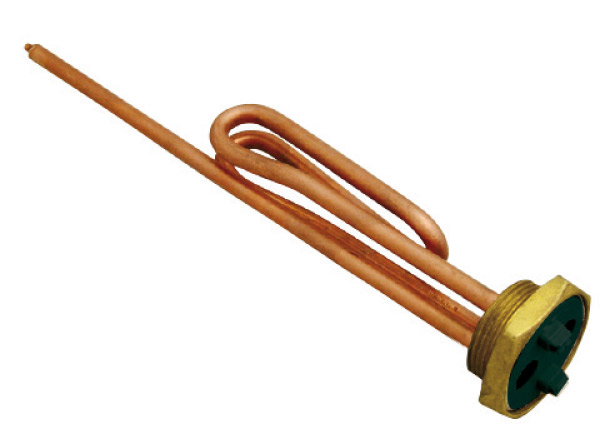Electrical armored resistors for heating
Electrical resistors for heating are used also for fluids other than water

When speaking about electrical resistors for heating, we always refer to the heating of water in industrial or domestic facilities. But aside from this main use of these resistors, there may also be other uses.
Oil or other fluids may be heated through these electrical resistors as long as the fluid is compatible with copper, the material with which these devices are made.
Not being made of material like stainless steel, they cannot be immersed in aggressive fluids which would corrode them in a short time, but only in chemically inert fluids.
While in the water a sacrificial anode in magnesium may be used, which is corroded in place of the resistor’s noble material, in other non-electrolytic fluids this reaction is not possible.
The GNALI BOCIA catalog contains a broad range of electrical resistors for heating suitable for all types of applications, choosing the most suitable power and types.
Oil or other fluids may be heated through these electrical resistors as long as the fluid is compatible with copper, the material with which these devices are made.
Not being made of material like stainless steel, they cannot be immersed in aggressive fluids which would corrode them in a short time, but only in chemically inert fluids.
While in the water a sacrificial anode in magnesium may be used, which is corroded in place of the resistor’s noble material, in other non-electrolytic fluids this reaction is not possible.
The GNALI BOCIA catalog contains a broad range of electrical resistors for heating suitable for all types of applications, choosing the most suitable power and types.
31/08/2017
I contenuti di questo sito non hanno carattere di periodicità e non rappresentano 'prodotto editoriale'.








